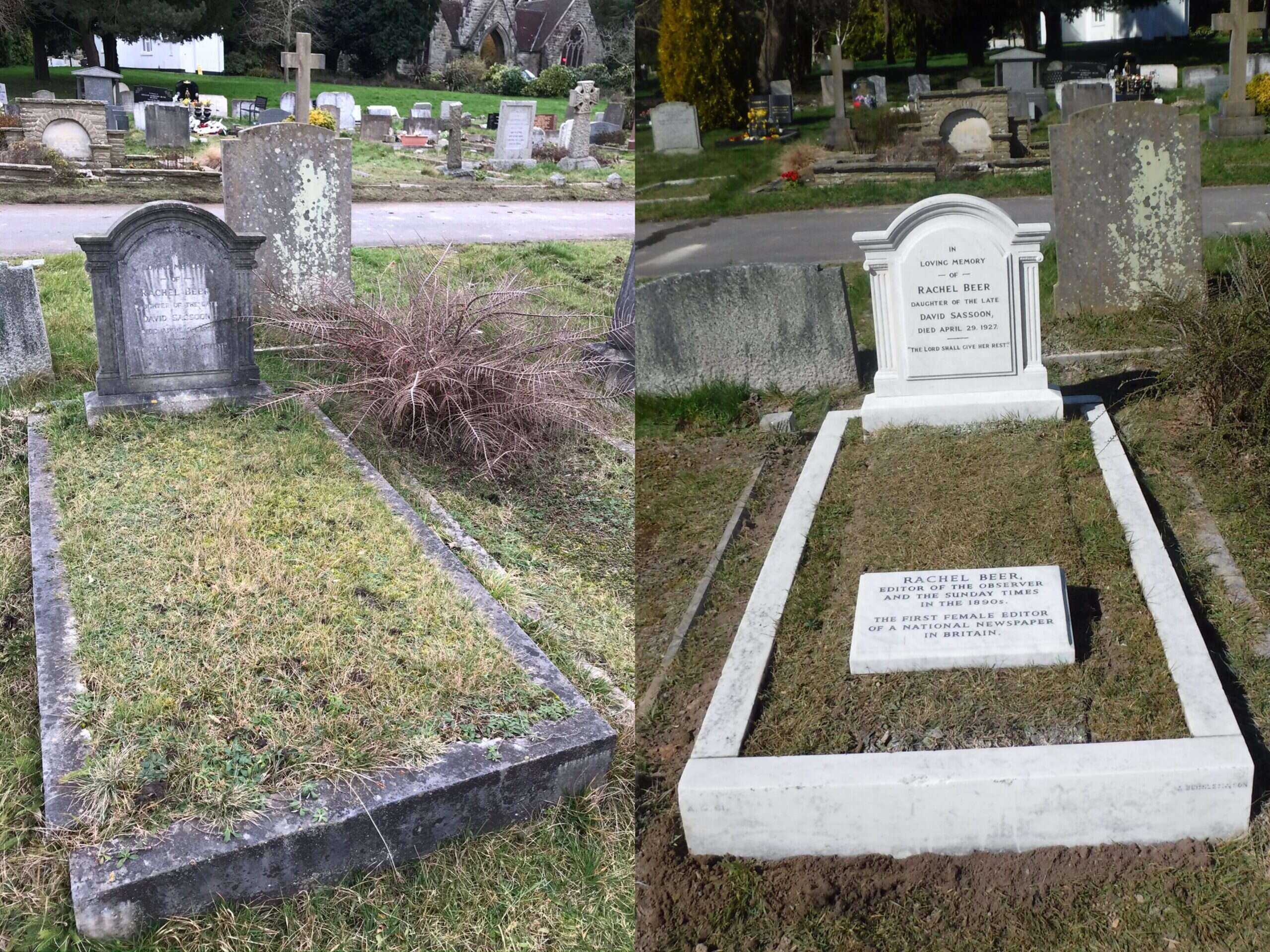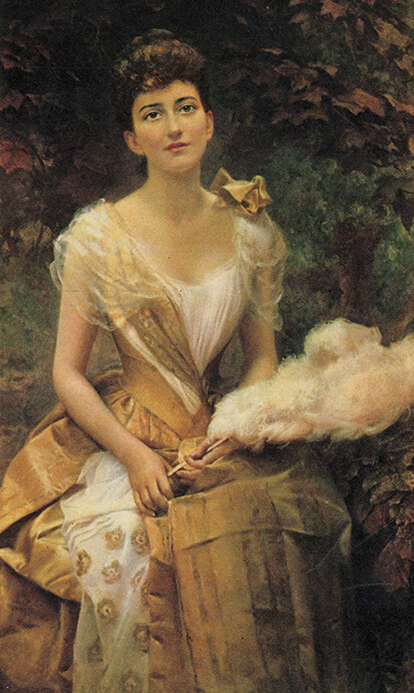
The Observer and Sunday Times have paid to have a marker added to the grave of the UK’s first female national newspaper editor Rachel Beer, marking her “pioneering contribution” to Fleet Street.
The project was led by Times columnist Ann Treneman who wrote a book, Finding the Plot: 100 Graves to Visit Before You Die, about the graves of exceptional people in history.
Treneman, a former foreign editor at the Observer, discovered in 2013 that although Beer’s husband is buried in a huge mausoleum in Highgate Cemetery, she was laid to rest in a hard-to-find and unkempt grave in Kent and Sussex Cemetery in Tunbridge Wells.
Beer’s headstone only noted her date of death in 1927 and that she was the daughter of businessman David Sassoon.
Treneman told Press Gazette: “I was struck by how virtually anonymous it was and I thought for the first female editor of a national newspaper to have on our epitaph that she was the daughter of someone wasn’t telling the whole story, to put it lightly.”
Beer edited both the Observer and the Sunday Times in the 1890s and both newspapers agreed to pay for the project, which also saw Beer’s headstone cleaned and restored.
The new marker states: “Rachel Beer, editor of The Observer and The Sunday Times in the 1890s. The first female editor of a national newspaper.”

First UK national newspaper editor Rachel Beer. Picture: Guardian News and Media archive
Treneman said: “It now looks really striking, I think. I feel that people will see that she did something that we should note and that we are proud of.
“It’s been a long process but I have to say, I’m really pleased.”
Emma Tucker is currently the first editor of the Sunday Times since Beer, having taken the reins in January.
She said: “Rachel Beer is a hugely important part of Fleet Street’s history and I’m pleased this new grave marker notes her pioneering contribution to journalism.”
Observer editor Paul Webster also lent his support, saying: “The Observer remains proud of this extraordinary woman’s accomplishments and is grateful that she now has a fitting memorial.”
At the time of Beer’s editorship in the 1890s, women were still barred from much of public life including the parliamentary press gallery and most London clubs.
She was born into the wealthy Jewish family the Sassoons in 1858 in Bombay before they moved to England.
When she was a young woman she worked as a nurse before marrying Frederick, a wealthy industrialist, in 1887. She converted to Anglicanism to do so and was disowned by her family as a result.
She became editor of the Sunday Times in 1893 after her husband bought it for her when he saw how much she enjoyed writing for the Observer.
The Beer family had already owned the Observer since 1870 and Rachel became an active editor in the mid-1890s after her husband became seriously ill.
Her biggest scoop at the Observer came when she obtained a confession proving that Jewish French army officer Captain Alfred Dreyfus had been falsely convicted of passing military secrets to Germany. She then wrote a leader column accusing the French army of anti-Semitism and calling for a retrial.
She was known as a campaigning editor with an interest in world affairs, with her first Sunday Times editorial commenting on the Sino-Japanese war, the British colonies, and Russia.
Beer edited both titles until 1901 when her husband’s death hit her hard and she moved to Tunbridge Wells where she was depressed and declared to be insane. She had no children.
Pictures: Ann Treneman
Email pged@pressgazette.co.uk to point out mistakes, provide story tips or send in a letter for publication on our "Letters Page" blog
